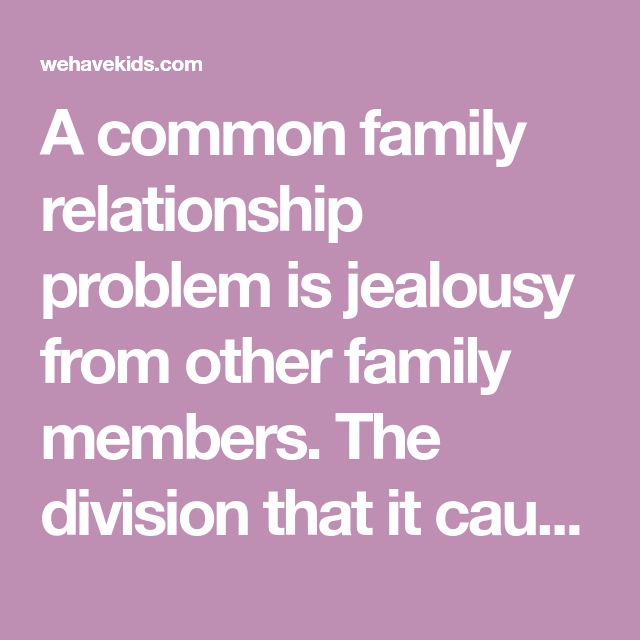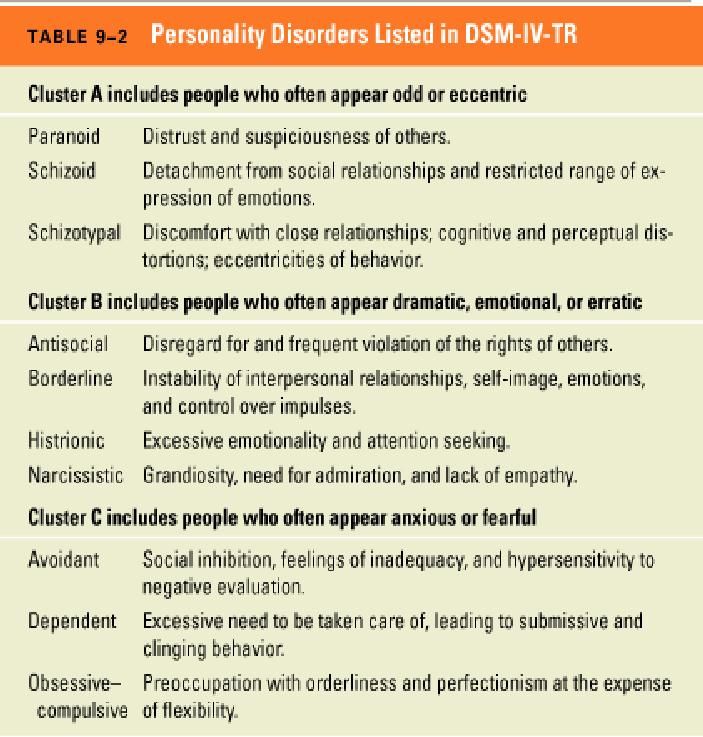Jealousy relationship problems
Unhealthy Relationship Behaviors Series: Jealousy
Written by Writer’s Corps member Carrie Manner
Jealousy. We’ve all experienced it. Jealousy can be defined as the vigilant maintaining or guarding of something. Jealousy has a bad rap but it’s normal to want to guard the people we love, especially when we see a potential rival cozying up to our significant other. But there’s a difference between feeling jealous and exhibiting unhealthy jealous behaviors.
Normal jealousy is a pang that comes on in an instant, one which we can usually dismiss on our own. Unhealthy jealous behavior happens when we indulge that feeling and act impulsively from a place of suspicion and insecurity. When insecurity in our relationships run rampant, jealousy can rapidly grow into paranoia and obsession and threaten to destroy the very relationship we’re most afraid to lose.
The Danger of JealousyJealousy doesn’t become a problem until it’s acted on. People that are prone to intense jealousy or possessiveness often harbor feelings of inadequacy or inferiority and have a tendency to compare themselves to others. Jealousy, at its core, is a byproduct of fear, fear of not being good enough, fear of loss. When it hits, it can trick us into believing our relationship is in immediate danger, making it impossible to distinguish between natural feelings of protectiveness and irrational suspicion.
In other words, it’s pretty terrible.
Yet the first time we see jealousy flare up in our partner, we may see it as “cute” and think, “Wow, this person must really love me!” If it’s the healthy kind of jealousy, those feelings will fade without incident and without negatively impacting the relationship. But we must be on alert for early warning signs of unhealthy behavior because it can lead to other forms abuse.
Unhealthy relationships often start with small things like a suspicious partner hunting for evidence of cheating. If they come up empty, rather than feel satisfied, they’ll vent their frustration through a variety of methods while breaking down their S. O.’s self-esteem with accusations, blaming, name-calling, and threats before moving onto emotional and physical abuse. Their tactics take on many forms, but as their jealousy grows, so does the chance for escalation. That’s why it’s important to identify red flags early.
O.’s self-esteem with accusations, blaming, name-calling, and threats before moving onto emotional and physical abuse. Their tactics take on many forms, but as their jealousy grows, so does the chance for escalation. That’s why it’s important to identify red flags early.
It can be easy to confuse unhealthy jealous behavior with love. Below are common warning signs that often show up at the start of relationships and snowball into dangerous problems later on.
You’re Expected to Spend All Your Time with Them
They’re not just excited to see you, they’re insistent. They ask you to blow off practice, ditch your friends, or back out of work, school, or family commitments because they’ve “never felt this way before” and “need to be near you.” They may become pouty/whiny when you don’t comply, and they tend to show up wherever you are, uninvited. They hate being away from you and contact you constantly when you’re not together.
While it may seem sweet when someone wants to spend all of their time with you, a person who respects you will understand that you need time away from the relationship. And you deserve time to be alone and pursue other interests- without facing punishment for it.
A caring partner will never force you to give up your hobbies, relationships, jobs, or activities so they can dominate your time.
You’re Required to Check-In
Your significant other likes to know where you are. They like to know what you’re doing and who you’re with. When you’re away, they call, text, or contact you through social media the entire time, expecting immediate responses. They ask you to turn on tracking apps, like Snap Maps, so they can see where you are. You keep your phone close at hand because you know if you don’t reply fast enough, they’ll become suspicious or get upset.
When we care about someone, it’s normal to ask for a text or phone call in situations where we want to know they’re safe. For example, we may ask them to text us when they make it home- that’s normal. An S.O. expecting you to keep him/her abreast of your every move anytime you’re apart is not.
For example, we may ask them to text us when they make it home- that’s normal. An S.O. expecting you to keep him/her abreast of your every move anytime you’re apart is not.
A healthy relationship doesn’t require “check-in’s.” Your partner shouldn’t require you to stay in constant contact when you’re away, and no one should ever insist on tracking you with an app or any other means. Knowing you’re safe should be enough, and if it’s not, your boundaries are not being respected. You are your own person, and you’re allowed to live your own life.
There Are Rules About Who You Can Talk To
You know there are certain people you’re not allowed to interact with unless you want to fight with your partner; the list might include exes, people you used to have a crush on, that flirty co-worker, etc. The reasons you’re not allowed to talk to each person varies: “I trust you, I just don’t trust them,” “It makes me uncomfortable when you talk to that ex,” “I just think I should be enough for you,” “I’ve seen the way he/she looks at you. ” The list goes on, and you go along with it even though you don’t agree because it’s not worth the fight.
” The list goes on, and you go along with it even though you don’t agree because it’s not worth the fight.
Demands about who you can talk to can lead to an abuse tactic called isolation. What begins with not being able to talk to a certain person becomes rules about staying away from pretty much anyone they feel is in competition for your affection, time, or attention. Eventually, everyone becomes off-limits until you’re isolated to only your partner, paving the way for depression and possibly an environment for physical abuse.
It’s never okay to regulate who your partner can and can’t talk to. Part of loving someone means trusting them to make good decisions about the company they keep. You can vocalize your concerns in a loving, honest way, but then you must trust your partner’s judgment. If one of you can’t trust the other, it may be time to move on.
They’re Suspicious
If you go out with friends, you know you’re going to get the third degree from your partner after. Your S.O. worries when you’re away and is convinced everyone is flirting with you. Sometimes it only takes someone else looking at you for them to get upset, and then they act as though you’re to blame. You get accused of being too friendly, dressing too provocatively, or giving people “the wrong idea.” No matter how much you reassure them of your faithfulness, they never believe you.
Your S.O. worries when you’re away and is convinced everyone is flirting with you. Sometimes it only takes someone else looking at you for them to get upset, and then they act as though you’re to blame. You get accused of being too friendly, dressing too provocatively, or giving people “the wrong idea.” No matter how much you reassure them of your faithfulness, they never believe you.
People in healthy relationships don’t put their partner’s every move under the microscope. They don’t constantly doubt the other’s intentions or laden them with accusatory questions. Love doesn’t scour for evidence or assume wrongdoing–insecurity does.
If you or your S.O. struggles with on-going suspicion, there may be a deeper underlying issue, and the relationship won’t work until it’s dealt with. Love withers whenever suspicion outweighs trust.
They’re Possessive
They’ve given you jewelry or a personal memento they want you to wear all the time so people know you’re taken. Even if they’re not overly touchy in private, they’re big on public displays of affection, particularly if your ex is around. They’re all over your social media and insist on having profile pictures and status updates together. They’re hostile to someone they think wants to date you. They’ve made you leave parties or cancel plans to be with them and make statements like, “You’re mine,” or “No one will ever love you like I do.”
Even if they’re not overly touchy in private, they’re big on public displays of affection, particularly if your ex is around. They’re all over your social media and insist on having profile pictures and status updates together. They’re hostile to someone they think wants to date you. They’ve made you leave parties or cancel plans to be with them and make statements like, “You’re mine,” or “No one will ever love you like I do.”
Movies and books have a bad habit of romanticizing this behavior; in real life, a possessive partner’s goal is not to share you with anyone. They operate from a need for control and will try to manipulate you emotionally, using gifts, over-the-top gestures, and compliments to re-establish your “belonging” to them. Their obsession can lead to physical confrontations with people they view as competition, and as their behavior continues, they won’t shy away from humiliating you in public if it means asserting their dominance; for example, they may yell at you and grab your arm to make you leave a gathering. With possessiveness, physical abuse and isolation aren’t far behind.
With possessiveness, physical abuse and isolation aren’t far behind.
People in happy, committed relationships understand love requires letting their significant other have space to be their own person. They let go of the need to mark their territory or to scare off the competition because they trust each other.
They Have a Quick Temper
One minute you’re looking forward to dinner at your favorite restaurant, next your partner’s causing a scene because you arrived a few minutes late. This happens pretty often, but you blame yourself because you know your partner has buttons that send them into a rage, and it’s your fault for pressing them. You wish you could be a better girlfriend/boyfriend, but you keep messing up, giving them a reason to explode. Some days you feel lucky they’re so forgiving and still love you at all because you make so many mistakes, even when you’re being careful.
If your partner’s temper is quick on the draw, it’s not a reflection of you. It simply means they haven’t learned how to deal with conflict or they may be using it as a means to manipulate, control, or dominate you. Either way, it’s not your fault.
It simply means they haven’t learned how to deal with conflict or they may be using it as a means to manipulate, control, or dominate you. Either way, it’s not your fault.
Healthy relationships work hard at conflict resolution. They’re dedicated to finding ways to talk through problems without hurting or disrespecting the other person. If the reaction you’re met with is always anger, it’s not your responsibility to stay and be an emotional, verbal, or physical outlet for it. That’s not love.
They Monitor Your Communications
Your partner tells you they’re an open book and want absolutely no secrets between the two of you. That’s why they require the passwords to your phone, email account, Facebook, SnapChat, Instagram, and any social media app you use. They go through your messages, question you about conversations, mince over your words, and delete contacts they don’t approve of, with or without your consent. Sometimes you notice your password doesn’t work or you’ve been locked out of your own account. You tell yourself it’s no big deal; it’s a small price to pay to be with them and show them they can trust you.
You tell yourself it’s no big deal; it’s a small price to pay to be with them and show them they can trust you.
Wanting your passwords is not about love, it’s about dominance and control. Your passwords are yours alone, and anyone insisting you supply this information doesn’t trust you and is acting in a controlling manner.
Healthy relationships don’t require you to prove your trustworthiness because trust doesn’t require proof. Even if you don’t mind sharing the information, indulging this negative behavior is communicating that it’s okay to violate your privacy, opening the door to other abusive behaviors down the road.
They’re Emotionally Intense
You noticed your partner came on strong right from the beginning, but you figured it was because they liked you so much. Now they hate being apart. They call and text you constantly and comb through all your social media accounts, liking and/or commenting on everything, even posts that are years old. They always want to have you to themselves and were quick to say “I love you,” though it felt fast. Conversations about “forever” come up a lot, and they talk about how they would “go crazy,” “die,” or “kill” themselves if the two of you ever broke up. It can be hard to get away from them, and you sometimes think they’re following you.
Conversations about “forever” come up a lot, and they talk about how they would “go crazy,” “die,” or “kill” themselves if the two of you ever broke up. It can be hard to get away from them, and you sometimes think they’re following you.
While it can be flattering to think someone adores us so intensely, beneath the surface is emotional dependency. If they come on too strong from the beginning, that same neediness may turn into pushy physical advances, stalking, threats of self-harm, and/or violence.
Happy couples know they cannot be everything to their partner. Each person needs a certain level of freedom and independence, which is why you should never be held accountable for another person’s happiness. Emotional intensity often elicits a feeling of suffocation, and if you are feeling this way, don’t ignore it.
Learn the Signs of an Emotionally Abusive Relationship
A Personal Story About JealousyJealousy is powerful. It destroys relationships and makes good, well-meaning people act in ways they never imagined. I was in a relationship where the warning signs were present, but I excused them all away as my phone and bags were subject to searches, and I had to “check-in” constantly, even at work. When I tried to spend time with friends, I’d get irritated texts and phone calls insisting I come back, and if I did, I’d be questioned about everything that happened until whatever I did “wrong” was discovered, and I’d be punished.
I was in a relationship where the warning signs were present, but I excused them all away as my phone and bags were subject to searches, and I had to “check-in” constantly, even at work. When I tried to spend time with friends, I’d get irritated texts and phone calls insisting I come back, and if I did, I’d be questioned about everything that happened until whatever I did “wrong” was discovered, and I’d be punished.
That was just the beginning. When it came out that I had a male friend at work, I was required to “break off” the friendship, along with many others I cared about. Tiny things, like a cashier being “too friendly” with me, were blown out of proportion, and my ex would berate them for flirting with me before storming out, leaving me alone to pay and deal with the scene. I was required to destroy mementos from previous relationships, including prom photos, and my clothing and behavior were under constant suspicious scrutiny. I felt like property and like I had to walk on pins and needles.
Yet my ex was so loving at times, he’d surprise me with notes and gifts or lavishing me in compliments and affection whenever we were out in public, that when he’d decide what I’d eat or would chauffeur for me to/from work, I thought it was old-fashioned and sweet. Eventually, things became so controlling that after screaming matches, I’d have to read my diary aloud so he could monitor what I wrote and was thinking. I was always being told I remembered things wrong or was lying about them. I was called “unstable” and “pathetic” after being clinically diagnosed with major depression. I’d go days without eating and get accused of losing weight for another guy when the truth was, I was just miserable. My words got minced and twisted around, and I’d get questioned so intensely about everything I did- right down to why I changed perfumes or was showering at a different time- it was easier to hide and cry myself to sleep, praying I wouldn’t wake up than to live my life.
As it continued to escalate from there, I began to blame myself.
I thought I deserved any ill-treatment directed toward me.
Often I wanted to leave but stayed because I had become convinced I was worthless. That no one else could ever truly love a screw up like me. He was so kind and charismatic with everyone else, I believed everything that started happening behind closed doors was 100% my fault.
In time, I did find a way out. I relied heavily on support from friends and family as he continued to contact me, show up at my house, post about me on social media, and track me down in public if I was out with someone else. It was a slow, painful process, but I eventually healed and learned not only to trust again but to love myself.
I used to think that intense jealousy came from a place of love. And because I was so eager to please and atone, I indulged the unhealthy behavior, not realizing how destructive it was for both of us. Good people can find themselves in bad situations that spiral out of control. If you’re in a relationship where red flags are present, please don’t ignore them. I’m sharing my story in hopes of showing you that you’re not alone, and it does get better. You also aren’t worthless, crazy, or to blame. No matter what’s been done, no one deserves to be abused.
I’m sharing my story in hopes of showing you that you’re not alone, and it does get better. You also aren’t worthless, crazy, or to blame. No matter what’s been done, no one deserves to be abused.
The key to maintaining a healthy relationship is to spot the signs early. If your partner displays jealous tendencies, here are some first steps you can take to try to navigate the situation:
- Talk to your partner about their concerns, taking a gentle approach. Listen to what they have to say and be honest about how their actions are making you feel.
- Establish boundaries with your partner. Communicate how you want to be treated, taking into consideration what’s important to each of you. For example, let them know you can contact them once when you arrive at a friend’s house, but that you will not be checking your phone the entire night. Knowing what the expectations are will alleviate guesswork and anxiety for both of you.

- Once you’ve talked through it, it’s time to show your partner a little extra love. They may be feeling vulnerable, so don’t hold back on the affection. Let them know you appreciate their honesty and any concessions they’ve made.
- As you will likely have to revisit the conversation several times before both parties are fully comfortable, continue to be patient but also firm about your boundaries. If you can’t come to a compromise, it may be time to end things.
If you’re the one feeling jealous, here are some things to remember:
- Jealousy is a feeling, not a call to action. When it creeps up, take a deep breath and remind yourself that a feeling is not the same as reality. In other words, just because you worry someone is cheating doesn’t mean they are.
- When you focus on something, it expands, so if you’ve convinced yourself that your partner is cheating, you’ll see evidence where there is none. Instead of obsessing, acknowledge the feeling, then let it be.
 If we don’t give it extra attention, it will usually pass on its own.
If we don’t give it extra attention, it will usually pass on its own. - Ask yourself what you stand to gain from jealous inclinations. Will acting on your impulses hurt or improve the relationship? Will it make you feel better or worse? Will it fix the problem or aggravate it?
- Accept that in relationships, there is no certainty. Just as you cannot make someone love you, you cannot make someone remain loyal or stay. If you’re unable to trust your partner, you’re better off moving on so you can enjoy independence or find someone else who shares your values.
- If you can’t move past a jealous feeling, be honest. Instead of pouting or giving the silent treatment, tell your partner specifically what is making you feel that way and listen to their response. You’ll likely find the interaction strengthens the relationship rather than tears it down the way punishments and games do.
If your friend is in a relationship and you see the warning signs, keep this in mind:
- Don’t be afraid to speak up.
 Often, it’s not as obvious to the person it’s happening to, so approach them in a caring manner.
Often, it’s not as obvious to the person it’s happening to, so approach them in a caring manner. - Don’t be forceful or get angry if they disagree with your assessment; it may take time for them to see things from an objective perspective.
- Make yourself available so that when they’re ready to talk, they’ll know you’re there for them.
- Continue to love them through their difficult situation and vocalize about your concerns.
- If you suspect your friend is in a dangerous situation, contact another trusted friend or adult, and refer to the National Domestic Abuse Hotline for tips at http://www.thehotline.org
Real love is not possessive. It does not act out of dominance, fear, or control. Rather, it is a mutual admiration and respect for another human being we long to see happy and whole. In a healthy relationship, there is a balance between compromise, self-love, and consideration for the other person.
While jealousy is a natural feeling everyone gets from time to time, when we obsess over it, it can change us and end relationships. It’s important to recognize when jealousy is motivating unhealthy behaviors and to protect our boundaries before they get crossed. Speaking up early will decrease the chance of escalation and will help lasting love blossom in healthy soil where trust runs deep, respect is present, and communication is abundant.
It’s important to recognize when jealousy is motivating unhealthy behaviors and to protect our boundaries before they get crossed. Speaking up early will decrease the chance of escalation and will help lasting love blossom in healthy soil where trust runs deep, respect is present, and communication is abundant.
If your partner’s jealousy takes a turn toward abuse, talk to someone right away! Tell a friend, family member, or a trusted adult. Ending an abusive relationship can be a dangerous and scary time, so be sure to gather the support you need and visit http://www.thehotline.org for additional guidance on how to remain safe.
How Jealousy Can Negatively Affect a Relationship
Understanding what’s at the root of the emotion can help you cope with jealous behavior.
No one wants to admit being jealous, but we’ve all felt it. We all know that stingy realization that something or someone we love is at risk of being lost or taken from us.
Jealousy can be a reflection of our innermost thoughts. We then project the emotion onto our reality and relationships.
We then project the emotion onto our reality and relationships.
Jealousy can create unhelpful patterns of behaviors and intrusive thoughts that can leave relationships reeling.
Even though jealousy can be problematic in relationships, the emotion can be redirected and reframed into productive, meaningful avenues for growth and acceptance.
Has your partner become more controlling by questioning your behaviors and motives? Are you feeling insecure and creating scenarios in your head and destructively projecting them onto your relationship? If so, jealousy might be the culprit.
Jealousy is the emotion we can experience when something of value — such as our romantic relationships or positions at work — is being threatened and can be potentially taken from us.
Also, jealousy can arise spontaneously and potentially sabotage our otherwise healthy and harmonious relationships.
Still, the emotion occurs naturally in humans and can invite us to turn our attention toward the root of the feelings we’re experiencing.
Some might argue that jealousy in relationships isn’t “bad” and can be quite constructive. But there is a fine line between jealousy as a healthy motivator and jealousy as the destructive antagonist.
Jealously runs on assumptions and can make you imagine circumstances that aren’t there. Understanding how signs of jealousy may show up within a relationship can be helpful.
Because every relationship is unique, jealousy may appear in various ways and look different for everyone. The following are common signs that indicate your partner might be experiencing jealousy:
- possessive or controlling behavior
- isolation
- constant reassurance
- monitoring your whereabouts and communications
- distrust or suspicion
- lack of boundaries
- increased volatility
Becoming aware of toxic behaviors in your relationship can help you examine how your actions may affect your partner.
Behaviors that you may notice can include but aren’t limited to:
- restricting your ability to communicate with others
- going through your phone when you’re not around
- checking your text messages and emails without consent
- threats or acts of physical violence
If you or someone you know are experiencing domestic violence, you can:
- Call the National Domestic Violence Hotline 24 hours a day at 800-799-7233
- Contact loveisrespect.
org by texting LOVEIS to 22522 or calling 866-331-9474
- Visit the National Coalition Against Domestic Violence for a list of resources
Anxiety and its trademark “what ifs” can create something out of nothing and leave the door open for jealousy to take root in your relationship.
According to a small 2021 study, people who monitor their partners on social media or mistrust online communication experience higher levels of jealousy and attachment anxiety.
The same study also reported that jealousy responses in relationships typically increase if an individual lives with attachment anxiety.
Behavioral patterns in previous relationships can also make you more likely to become jealous or experience jealousy in your relationship.
Jealousy is often a cover for underlying issues, such as:
- insecurity
- low self-esteem
- neuroticism
- fear of abandonment
These issues can fuel jealousy and manipulate a person’s behavior. They can also cause harm that can be hard to recover from.
They can also cause harm that can be hard to recover from.
If jealous behavior and feelings impact your relationship, implementing strategies and techniques can help you navigate back to a more peaceful place. The following are some to consider.
Explore the root of jealousy
Try to identify why jealousy has become an issue and communicate openly with your partner about their point of view.
You may also consider asking a trusted friend for their opinion. You might be surprised how a different perspective can help you see more clearly.
Focus on the present moment
The presence of jealousy can be an opportunity to discuss the reality of your relationship versus the perception of what it should be.
Mindfulness and gratitude practices may also be beneficial for overcoming jealousy. Being grateful for the relationship you have, perfect or not, can help you identify all the things that work.
Therapy
Couples therapy may also prove beneficial.
Finding a space where we feel comfortable expressing our true feelings, especially on a sensitive topic like jealousy, can be difficult.
A therapist can help guide your discussions so that you and your partner can get to the root causes of jealousy. They can also help you work to reframe unhelpful behaviors or intrusive thoughts.
Jealousy is a natural emotion, but it can create quite a challenge for even the strongest relationships.
Whether you notice jealousy in your partner or yourself, understanding why jealousy is present is crucial to the relationship’s survival.
Try to observe how jealousy affects your relationship and explore the root cause without judgment.
It may take time, but you can overcome jealousy with an openness to communicate and an ability to employ gratitude toward your partner and relationship.
Why we are jealous and how to stop doing it
November 6, 2021Relationships
There are often no real reasons, so it is up to you to cope with the problem.
Share
0 You can listen to the article. If you feel more comfortable, turn on the podcast:
What causes jealousy
You are insecure
Licensed clinical psychologist Seth Meyers writes 3 prime reasons why people get jealous / Psychology Today that people with low self-esteem may feel insecure in relationships. They believe that they are not good enough to attract a partner and keep his interest over time.
You need to control everything
One partner worries about his place in the other's world. Perhaps, even in childhood, a person experienced a disturbing experience and now thinks that he cannot be trusted, because at any moment he can be preferred to another.
Anastasia Popova
Psychologist, systemic family psychotherapist of the Family Medical Center "Leib-Medic".
But this is not just anxiety. This is an attempt to control the actions of the other side. Fear of someone else's freedom and rebellion against it.
Fear of someone else's freedom and rebellion against it.
You are too strongly attached to a partner
Constant baseless jealousy may appear due to excessive attachment, when one cannot separate from the other and lives his life.
If you constantly interfere in the life of a companion, forbid meeting friends and spending time separately, the chances of destroying relationships are high. There is nothing wrong with a couple having common interests. But everyone should also have their own hobbies.
You project your own repressed desires onto your partner
Family psychotherapist Anastasia Popova notes that jealousy can arise due to the projection of one's own state and repressed sexual desires onto another person. Without admitting to ourselves, we want to go to the left, only now we attribute this to the satellite.
You have obsessive thinking
Jealousy can be the result of obsessive (obsessive) thinking. Psychologist Seth Meyers recalls 3 prime reasons why people get jealous / Psychology Today the case of a patient who was jealous of partners in all her relationships. She also had some signs of obsessive-compulsive disorder. When her husband came home late, lingered, she could not put up with not knowing what and where he was doing. Therefore, I filled in the gaps and thought out myself. I took the facts out of my head, and then I was jealous and worried. She herself created disturbing thoughts and reasons for excitement when faced with the most terrible circumstance for this type of people: unknown .
She also had some signs of obsessive-compulsive disorder. When her husband came home late, lingered, she could not put up with not knowing what and where he was doing. Therefore, I filled in the gaps and thought out myself. I took the facts out of my head, and then I was jealous and worried. She herself created disturbing thoughts and reasons for excitement when faced with the most terrible circumstance for this type of people: unknown .
Also, according to the expert, jealousy can be caused by a person's general paranoid state.
There is a real reason for jealousy
Perhaps the most logical reason: there really is a reasonable reason for jealousy. Maybe this is an unambiguous correspondence with another or another, not yet forgotten betrayal or irrefutable evidence of infidelity.
How to stop being jealous
Accept and examine your thoughts
Robert Leahy, PhD, Professor at Yale University, Past President of the Association for Behavioral and Cognitive Therapy, the Academy of Cognitive Therapy, and the International Association for Cognitive Psychotherapy, recommends Jealousy is a killer: How to break free from your jealousy / Psychology Today to stop at the peak of jealousy breathe out and pay attention to your thoughts.
Do they reflect the reality? If you think that a partner is interested in someone other than you, this does not mean that they are. You must understand that thoughts and reality are different things.
Don't give in to feelings of jealousy
Anger and anxiety can intensify if you start fixating on them. You need to accept your emotions and let them be. You don't have to "get rid of the feelings," but if you approach observing your experiences consciously, it will help to ease them.
Understand that uncertainty is part of any relationship
We are looking for certainty: “I need to know that she / he is not interested in you” or “I want to know that we will not part and be together.” Dr. Leahy writes that some are even ready to end the relationship before they think the other does.
Robert Leahy
Uncertainty is part of life. This is something we cannot do anything about.
It is impossible to know for sure whether your partner will leave you or not. But with your accusations and reproaches, you can create a self-fulfilling prophecy.
But with your accusations and reproaches, you can create a self-fulfilling prophecy.
Understand your conjectures
Jealousy can be fueled by unrealistic beliefs: past relationships of a loved one threaten your union, you have nothing to offer a partner, this relationship will repeat a bad experience with another or another. Often this is nothing more than speculation that has nothing to do with reality.
Find effective ways to build relationships
“Instead of relying on jealousy, find another way to make the union safer,” advises Robert Leahy. For example, pay attention when your partner does something good, praise each other, refrain from criticism and sarcasm, or make a list of simple and pleasant things that would please each of you.
Take care of yourself
We must not forget about our development. Find a hobby, play a sport, or take a yoga class. Do not deprive yourself and your beloved of freedom and personal space.
Show gratitude instead of jealousy
To a certain extent, jealousy is normal in a relationship. But only as long as it strengthens them, and does not destroy them.
But only as long as it strengthens them, and does not destroy them.
Anastasia Popova
It is useful to remember that besides me, a wonderful miracle, my partner has many other people in his life who can take my place. And that he or she chooses and prefers me over someone else.
A good alternative to jealousy is gratitude for choosing you, for being together. You can’t save a relationship with jealousy, but with gratitude it can work out.
Build up trust
Oleg Ivanov
Psychologist, conflictologist, head of the Center for Settlement of Social Conflicts.
Jealousy is usually "cured" by trust. If you do not trust your partner, be sure to talk to him about it.
He may not even guess about your feelings and not know that his behavior gives rise to them.
Accept the situation and reconsider the relationship
This applies precisely to those cases in which there are justified reasons to doubt the fidelity of a loved one.
Anastasia Popova
Jealousy can be a completely honest and normal feeling and have real reasons. Then you need not to suppress it, but to honestly see the unpleasant truth.
In this situation, it is necessary to decide what to do not with feelings of jealousy, but with relationships in general.
The problem can be dealt with. But, if it sits deep and is rooted in childhood, it is better to work out the issue with a specialist. Jealousy can be dangerous and even destructive for relationships, you should not leave it unattended.
Read also 🧐
- 3 effective ways to overcome jealousy
- 6 signs of an unhealthy relationship that people consider normal
- 15 tips that harm relationships
Jealousy. View of psychologists - PSU T.G. Shevchenko
As part of the project “Love, family, children” implemented by the Psychological Service, we offer you to get acquainted with some of the problems that may arise in relations between a man and a woman.
Jealous is a child,
who is afraid of monsters,
created in the darkness of his imagination.
Pierre Boiste (French philosopher)
There are different views on jealousy in relations between a man and a woman.
- Jealousy is an integral part of sexual love, intimate friendship, it speaks of the strength of attraction.
- Jealousy is selfishness in sexual relations.
- Jealousy is an emotion not inherent in love, like a shadow in human relationships.
In psychology, jealousy is viewed as a negative feeling arising from self-doubt when feeling a lack of attention, love, respect or sympathy from a very close person, while all this is real or imaginary received by someone else.
This definition is very common and actually illustrates the essence of the problem. Namely, that the feeling of jealousy is fueled by the internal images of a person. Therefore, for a jealous person, proofs and explanations are often not an argument for trust and peace of mind.
Therefore, for a jealous person, proofs and explanations are often not an argument for trust and peace of mind.
An interesting fact is that jealousy has a biological basis and purpose. This feeling is provided by nature to protect the object most suitable for procreation, to preserve one's life and is fueled by testosterone. From this point of view, there is an objective, necessary jealousy. But what to do with pathological jealousy, which does not need real facts? Both the jealous and their entourage suffer from such excruciating jealousy. Particularly jealous people resort to surveillance, violence, scandals, depression, intrusive actions in the form of checking phones, etc. All this has a detrimental and destructive effect on family and love relationships.
Pathological jealousy, one way or another, can be compared with a psychological problem of a certain kind. Therefore, we propose to consider the following types of jealousy:
Paranoid jealousy. People with this type of jealousy, avoiding fantasies of their own desires for infidelity and polygamous relationships, project their needs onto other people, becoming convinced that their partners are dangerously attractive to others. According to the British psychoanalyst Nancy McWilliams, such fears often hide the fear of one's own homosexual fantasies, which are dangerous from the point of view of social punishment. It is in this that the need of a paranoid jealous person is revealed, not to receive punishment himself, to blame a loved one. Jealousy of this type arises as a result of an extreme degree of humiliation in the family, as well as due to increased anxiety of the mother, who not only is not able to help the child cope with her relationship, but also transmits to him a basic distrust of the world and himself.
People with this type of jealousy, avoiding fantasies of their own desires for infidelity and polygamous relationships, project their needs onto other people, becoming convinced that their partners are dangerously attractive to others. According to the British psychoanalyst Nancy McWilliams, such fears often hide the fear of one's own homosexual fantasies, which are dangerous from the point of view of social punishment. It is in this that the need of a paranoid jealous person is revealed, not to receive punishment himself, to blame a loved one. Jealousy of this type arises as a result of an extreme degree of humiliation in the family, as well as due to increased anxiety of the mother, who not only is not able to help the child cope with her relationship, but also transmits to him a basic distrust of the world and himself.
Manifestations. Constant distrust, checks, ideas that they will be thrown and betrayed from the very beginning of the relationship. This is expressed not just in deliberation, but in a sense of fear of losing the relationship. The partner of a paranoid jealous person in the course of the relationship begins to experience anxiety and a sense of insecurity that he did not experience before. With all this, paranoid individuals are capable of deep relationships, love and fidelity, and therefore can become wonderful family men. In order to help your partner cope with your distrust, create a stable, understood and friendly environment in the house and in the relationship. Keep promises, try to tell the truth. He needs to feel that your relationship is honest and safe.
This is expressed not just in deliberation, but in a sense of fear of losing the relationship. The partner of a paranoid jealous person in the course of the relationship begins to experience anxiety and a sense of insecurity that he did not experience before. With all this, paranoid individuals are capable of deep relationships, love and fidelity, and therefore can become wonderful family men. In order to help your partner cope with your distrust, create a stable, understood and friendly environment in the house and in the relationship. Keep promises, try to tell the truth. He needs to feel that your relationship is honest and safe.
Narcissistic jealousy. People whose personality is organized around the support of self-esteem through confirmation from outside are called narcissists. Jealousy of narcissists is based on a deep unconscious feeling that they are deceived and unloved and fueled by fear of shame. It is formed as a result of excessive expectations on the part of parents, inflated standards that are difficult for a child to meet. It seems to such people that if they are not the best, they will not be loved. Because of this, narcissistic jealousy is highly sensitive to non-verbal emotional messages and messages in the presence of other people. For example, when a partner is too smiling and friendly with others, has many friends. Jealousy manifests violently, emotionally. At the same time, you can hear the phrases “What will others think? They will laugh at me. Did you flirt with him because he makes more money? In order to quench the narcissist's jealousy, praise your partner more, especially in front of others. Try to be more restrained in praising others. And most importantly, the partner must understand that you love him and appreciate him not only for his achievements, but for his individuality and small weaknesses.
It seems to such people that if they are not the best, they will not be loved. Because of this, narcissistic jealousy is highly sensitive to non-verbal emotional messages and messages in the presence of other people. For example, when a partner is too smiling and friendly with others, has many friends. Jealousy manifests violently, emotionally. At the same time, you can hear the phrases “What will others think? They will laugh at me. Did you flirt with him because he makes more money? In order to quench the narcissist's jealousy, praise your partner more, especially in front of others. Try to be more restrained in praising others. And most importantly, the partner must understand that you love him and appreciate him not only for his achievements, but for his individuality and small weaknesses.
Psychopathic jealousy. Psychopathic jealousy is the most violent and takes the most pathological forms and consequences. The main problem is that a person cannot constantly control his impulses and reactions. Therefore, manifestations of jealousy are antisocial in nature. Psychopathic jealousy is built on the inability to human affection and reliance in relationships on primitive territorial psychological mechanisms. Jealous people believe that it is necessary to remind who is the boss in the house, and to show with jealousy that a person is his property. Most often, this type of jealousy is observed in men. The degree of manifestation of jealousy decreases after 30-40 years. Since it is difficult and almost impossible for psychopathic personalities to express their emotions and fears, they demonstrate them through showing their strength, resorting to violence, beatings, screaming. In order to avoid violence due to jealousy, it is necessary to make a person respect himself. Keep your promises and threats, do not throw words into the wind. And in no case do not tolerate pathological manifestations of jealousy, because this will only contribute to their growth.
Therefore, manifestations of jealousy are antisocial in nature. Psychopathic jealousy is built on the inability to human affection and reliance in relationships on primitive territorial psychological mechanisms. Jealous people believe that it is necessary to remind who is the boss in the house, and to show with jealousy that a person is his property. Most often, this type of jealousy is observed in men. The degree of manifestation of jealousy decreases after 30-40 years. Since it is difficult and almost impossible for psychopathic personalities to express their emotions and fears, they demonstrate them through showing their strength, resorting to violence, beatings, screaming. In order to avoid violence due to jealousy, it is necessary to make a person respect himself. Keep your promises and threats, do not throw words into the wind. And in no case do not tolerate pathological manifestations of jealousy, because this will only contribute to their growth.
Masochistic jealousy.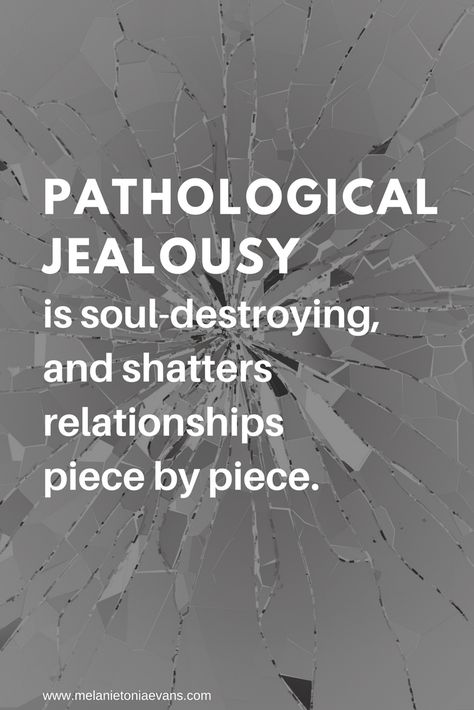 People with masochistic jealousy have an unconscious idea that they can only be interested and loved in moments of fear, anxiety and suffering. Such feelings are formed at an early age, if parents pay attention to the child only at the moment when he is very ill (strong tears, a full diaper, pain). Masochists - jealous people fantasize and expect jealousy in order to feel pain and cause a partner to feel guilty, in which he will pay more attention to him. Often masochists introduce loved ones to attractive people and provoke situations in which their jealousy escalates. Even if there is an objective reason for jealousy or betrayal, masochists do not leave their loved ones, receiving painful pleasure from the situation. Manifestations of this type of jealousy are as follows: a sad person reminds that he loves so much, but he doesn’t, and he suffers. To help cope with the manifestations of masochistic jealousy, you can use trusting relationships. Try to pay attention to your partner in ordinary and pleasant situations.
People with masochistic jealousy have an unconscious idea that they can only be interested and loved in moments of fear, anxiety and suffering. Such feelings are formed at an early age, if parents pay attention to the child only at the moment when he is very ill (strong tears, a full diaper, pain). Masochists - jealous people fantasize and expect jealousy in order to feel pain and cause a partner to feel guilty, in which he will pay more attention to him. Often masochists introduce loved ones to attractive people and provoke situations in which their jealousy escalates. Even if there is an objective reason for jealousy or betrayal, masochists do not leave their loved ones, receiving painful pleasure from the situation. Manifestations of this type of jealousy are as follows: a sad person reminds that he loves so much, but he doesn’t, and he suffers. To help cope with the manifestations of masochistic jealousy, you can use trusting relationships. Try to pay attention to your partner in ordinary and pleasant situations.
Schizoid or avoidant jealousy. Schizoid jealousy is inherent in people who unconsciously and purposefully form fantasies of jealousy in order to create or maintain an interpersonal distance with a partner. These people are unemotional and therefore, in their jealousy, they do not show excessive anxiety and emotions. You can only notice the sadness that the jealous man does not want to talk about. This is precisely the difficulty in calming jealousy - it is difficult to guess about it. From them you can hear calm phrases like: “You like him, then I won’t interfere”, “I can’t stand your obvious flirting, I need to think in private.” Also, his ideas about jealousy can take a very artsy and creative form. For example, ideas for incredible dates or gifts. If a person becomes jealous, he becomes surprisingly indifferent in sexual relations, spends a lot of time away from home and at work, reading philosophy. The main problem that causes jealousy is the emotional distancing that a person is used to. If you see that the mother of a loved one is very cold and stingy with emotions, you can expect various tricks from him, with the help of which he will try to maintain a safe interpersonal distance with you. Respect for a person's personal boundaries can help deal with this kind of jealousy. If you feel that it is difficult for your partner to open up, give him the opportunity to get used to you gradually. He should have a place in the house that will be only his. Otherwise, sooner or later he will resort to his defense mechanisms of avoiding contact and form the idea of jealousy.
If you see that the mother of a loved one is very cold and stingy with emotions, you can expect various tricks from him, with the help of which he will try to maintain a safe interpersonal distance with you. Respect for a person's personal boundaries can help deal with this kind of jealousy. If you feel that it is difficult for your partner to open up, give him the opportunity to get used to you gradually. He should have a place in the house that will be only his. Otherwise, sooner or later he will resort to his defense mechanisms of avoiding contact and form the idea of jealousy.
Hysterical jealousy. Tantrums are very emotional, sensitive and demonstrative. They have a developed intuition and are used to being the center of attention of a loved one and not only. Tantrums are used to having fun. Hysterical jealousy always has a vivid emotional character and is often associated with suspicions of betrayal in the form of sex, and not spiritual intimacy. Jealousy often arises if sexual relations cool down and comes with the first manifestations of old age (wrinkles, gray hair). These two indicators form a belief in personal unattractiveness, and as a result, a certain justification is formed, in our case, treason. Jealous people are convinced that the partner has found or is looking for a younger and physically stronger person. The hysteric sharply and violently demonstrates his jealousy, begins to scream for no reason. His mood quickly changes from good to bad, there is no criticism of his actions, he calms down only in case of a scream or aggression from a partner. The actions of a jealous person are unusually theatrical, reminiscent of playing out a tragedy. In order to reduce the level of unreasonable jealousy, it is necessary to kindle a flame in sexual relations, to talk more often about the external attractiveness of a partner.
Jealousy often arises if sexual relations cool down and comes with the first manifestations of old age (wrinkles, gray hair). These two indicators form a belief in personal unattractiveness, and as a result, a certain justification is formed, in our case, treason. Jealous people are convinced that the partner has found or is looking for a younger and physically stronger person. The hysteric sharply and violently demonstrates his jealousy, begins to scream for no reason. His mood quickly changes from good to bad, there is no criticism of his actions, he calms down only in case of a scream or aggression from a partner. The actions of a jealous person are unusually theatrical, reminiscent of playing out a tragedy. In order to reduce the level of unreasonable jealousy, it is necessary to kindle a flame in sexual relations, to talk more often about the external attractiveness of a partner.
Obsessive-compulsive jealousy. People prone to this type of jealousy tend to form obsessive thoughts and actions.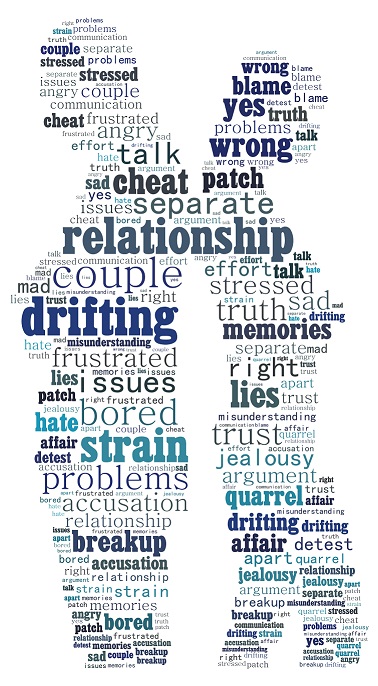 There are many workaholics and scientists among them. Their jealousy is saturated with rational explanations, facts, and is unemotional. Manifestations of jealousy are systemic, planned. For example, a person checks your phone exactly four times a day or eavesdrops only on evening phone conversations. Jealousy is similar to ritual actions. The reason for jealousy is the anger and fear imposed on the part of the parents, when they showed love only in return for homework done, a poem read or told. Thus, by performing certain actions, the jealous person protects himself from the loss of the object. Let the person perform his rituals, of course, if they are more or less normal. Remember that this is how they think they protect your relationship.
There are many workaholics and scientists among them. Their jealousy is saturated with rational explanations, facts, and is unemotional. Manifestations of jealousy are systemic, planned. For example, a person checks your phone exactly four times a day or eavesdrops only on evening phone conversations. Jealousy is similar to ritual actions. The reason for jealousy is the anger and fear imposed on the part of the parents, when they showed love only in return for homework done, a poem read or told. Thus, by performing certain actions, the jealous person protects himself from the loss of the object. Let the person perform his rituals, of course, if they are more or less normal. Remember that this is how they think they protect your relationship.
In any case, jealousy, one way or another, may be present in our relationship. It can be useful and warm up a cooled relationship. But it can destroy even the strongest union. “If you want to keep your husband, make him a little jealous of you; if you want to lose him, make him jealous of you a little more” (Henry Louis Mencken).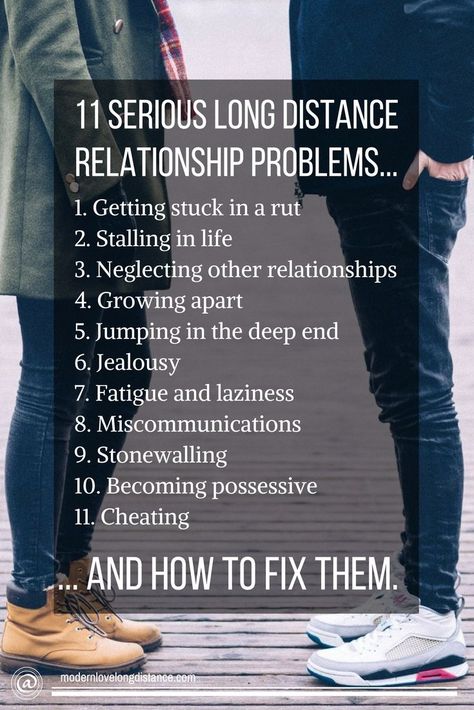 Jealousy can keep you feeling in love. In a stable relationship, eliciting a little bit of jealousy is just as important as it is when a relationship starts. But here it is very important not to go too far. Causing jealousy in a partner, it is important not to forget to give him attention, care, your love. Remember that when playing with jealousy, it is important not to play too much. If there is too much jealousy, it becomes almost impossible to maintain a warm relationship.
Jealousy can keep you feeling in love. In a stable relationship, eliciting a little bit of jealousy is just as important as it is when a relationship starts. But here it is very important not to go too far. Causing jealousy in a partner, it is important not to forget to give him attention, care, your love. Remember that when playing with jealousy, it is important not to play too much. If there is too much jealousy, it becomes almost impossible to maintain a warm relationship.
Psychologists at the University of Delaware believe that both women and men are subject to blind jealousy. Two professors have found that in a moment of jealousy, people become so drunk on negativity that they are unable to distinguish objects in front of them. Therefore, at the moment when jealousy becomes pathological, that is, it is formed not on objective facts, but on internal deep problems, a similar blindness overcomes a person’s whole life and relationships. And then the most effective way out can be an appeal to an experienced psychologist.